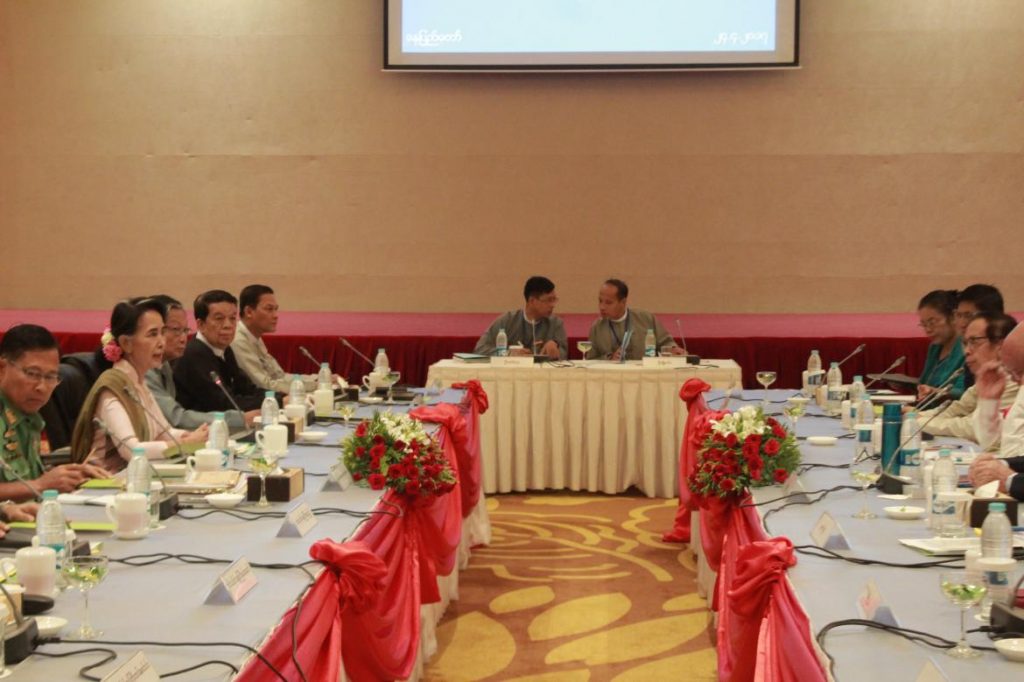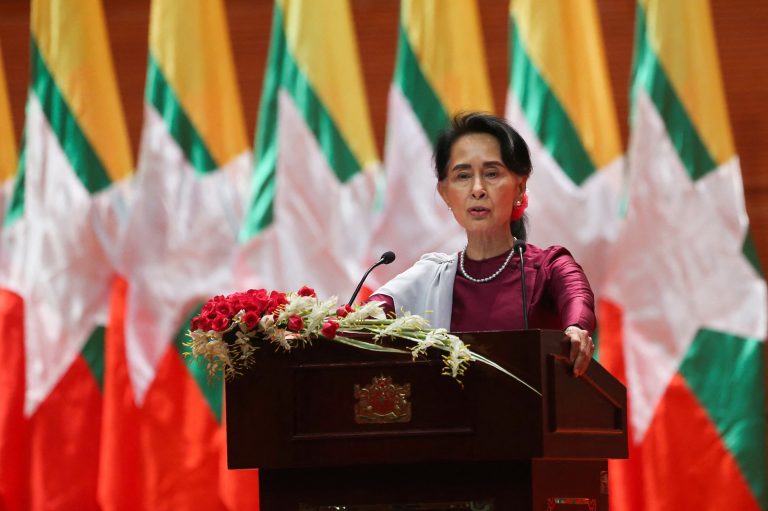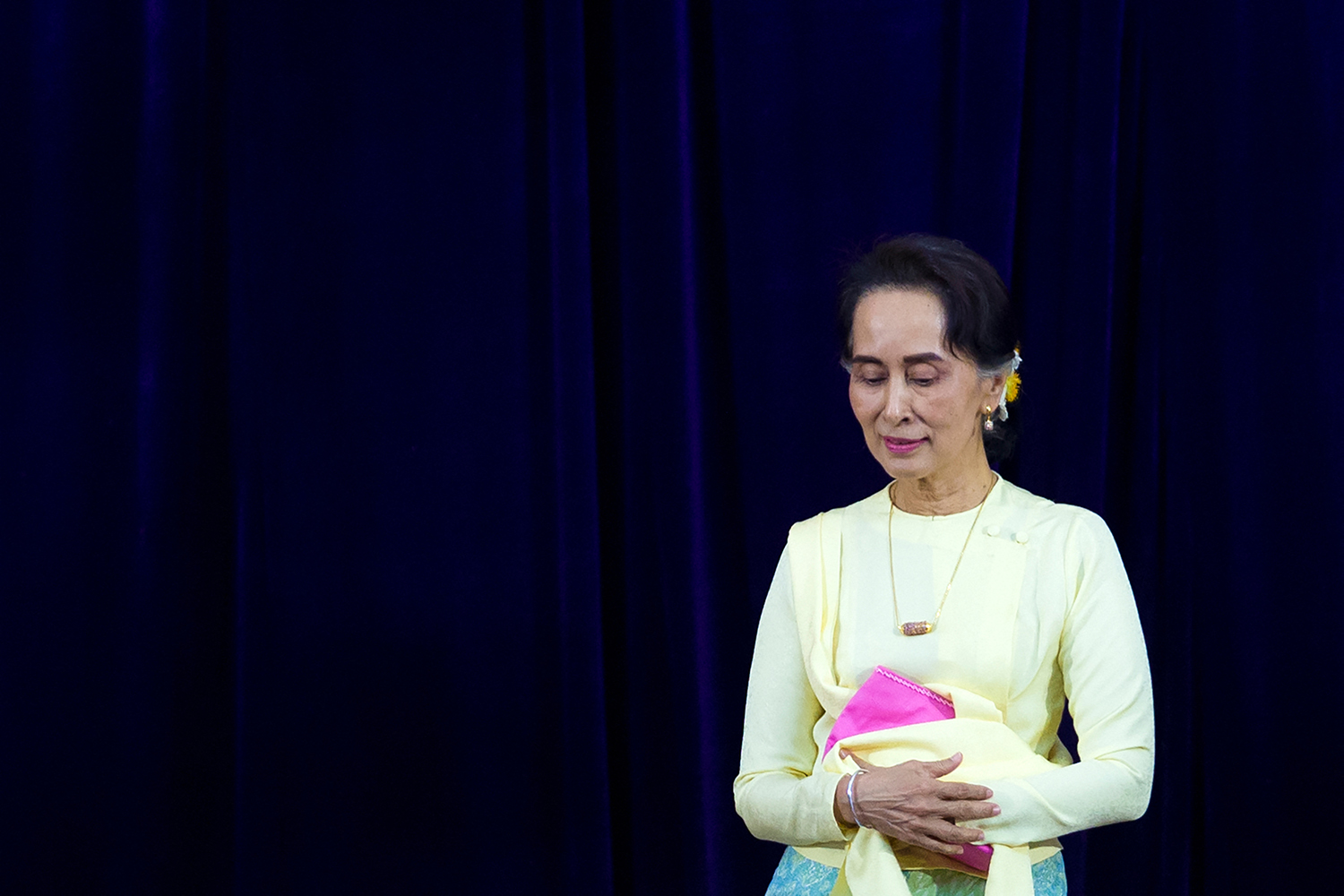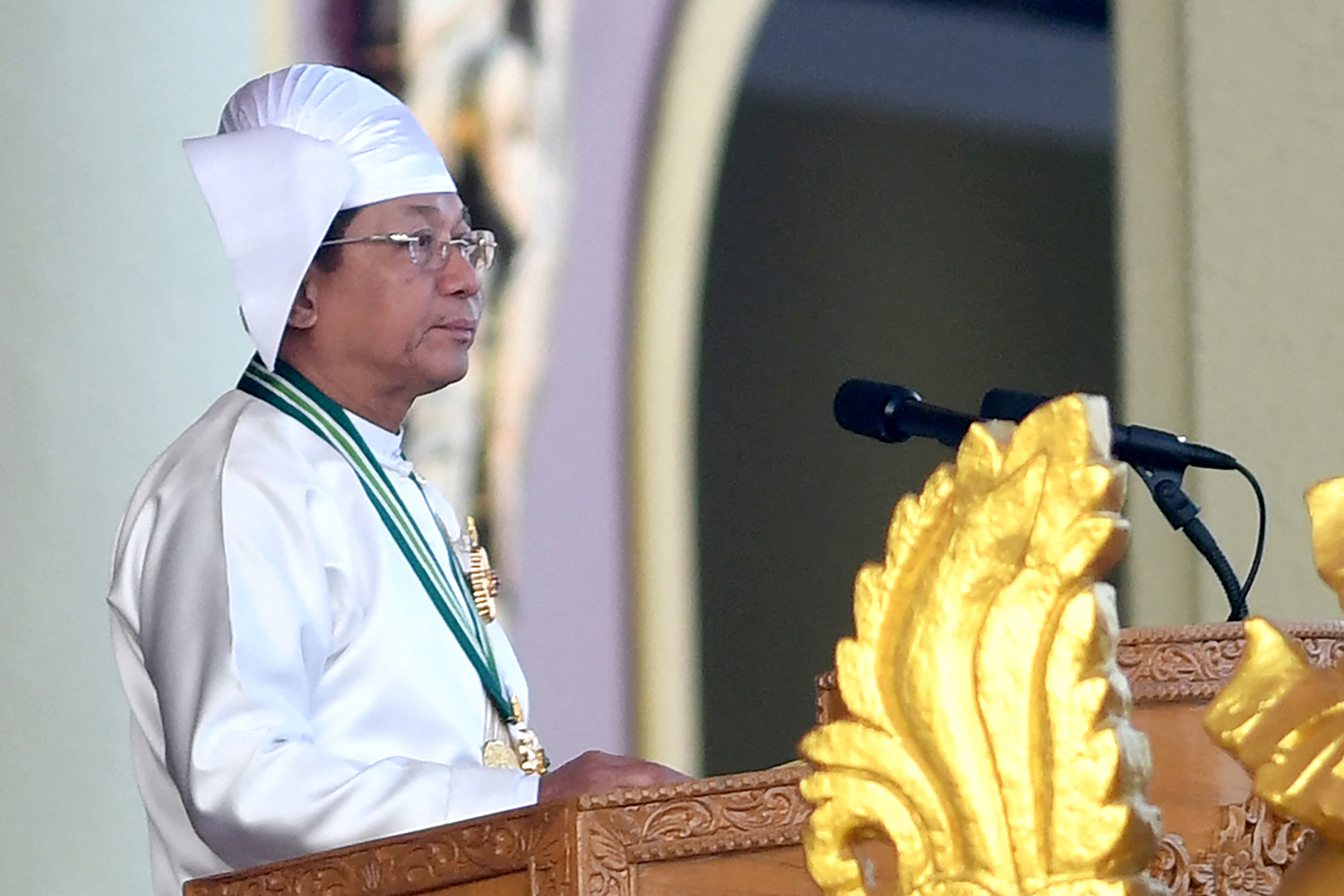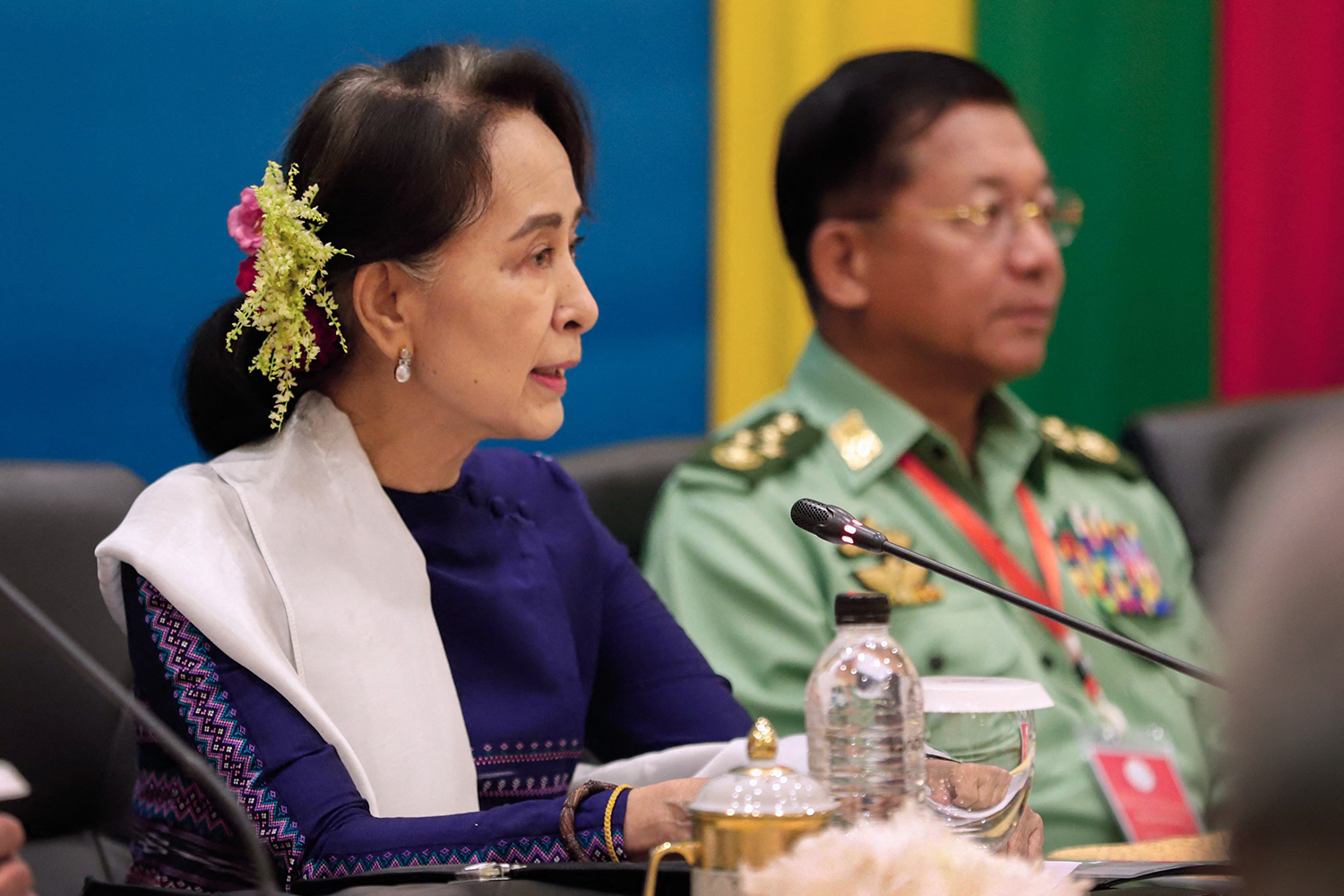NAY PYI TAW—The government and signatories of the nationwide ceasefire have agreed to open the second 21st Century Panglong Union Peace Conference on May 24, almost three months later than originally planned.
The date was agreed upon following “intense” discussion at a Joint Implementation Coordination Meeting in Nay Pyi Taw on Monday.
Colonel Khun Okkar of the Pa-O People’s Liberation Organization said the meeting would run for at least five days, and participants expect progress to be made on key issues related to the political dialogue process.
“This [conference] will not just be about showing off [ethnic] costumes. We will make sure to take political decisions after deep discussion, so it [the conference] will run for five days,” he said.
The first Panglong conference, held in August-September 2016, saw delegates present policy papers outlining their views on the peace process. This approach enabled the government to invite non-signatories to the nationwide ceasefire to the conference, but no decisions on the future of the peace process were taken at the event, which finished a day early.
Support more independent journalism like this. Sign up to be a Frontier member.
Under the current rules governing the political dialogue process, only signatories can attend as “participants” and vote on proposals.
Eight armed groups have signed the ceasefire, but the government expects another five to sign up in the near future.
Seven more, including the country’s most powerful non-state forces, have rallied behind the leadership of the United Wa State Army and demanded political negotiations without a nationwide ceasefire.
Khun Okkar said no decision had been made on whether to invite non-signatories to the second Panglong conference.
State Counsellor Daw Aung San Suu Kyi, who chairs the National Reconciliation and Peace Centre, said the current period was vital for achieving both the country’s democratic goals and “everlasting peace”.
“Development will occur only when there is peace. Bearing this in mind, we will build the union based on democracy and a federal system through the results of the political dialogue to achieve everlasting peace as soon as possible” she said.
She emphasised the importance of inclusivity in the peace process. “Peace will only be achieved when everyone is included,” she said.
Vice Senior General General Soe Win urged signatories to press their non-signatory counterparts to sign the agreement.
“There are some understanding that the nationwide ceasefire is about demanding [ethnic armed groups] to surrender,” Soe Win said. “I want to ask the ethnic leaders who have already signed the agreement to explain to the groups that haven’t understood about it, and the groups who already understand but pretend not to.”


